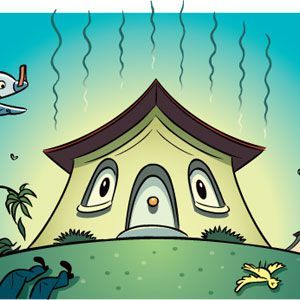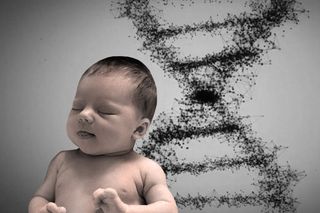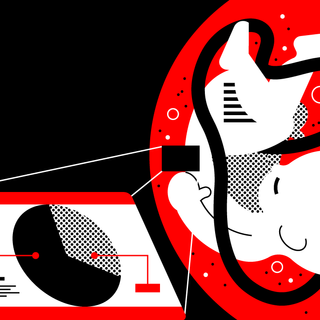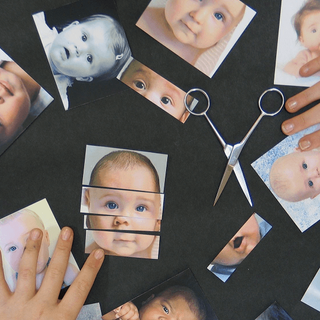
Genome Sequencing Could Tell Parents If a Newborn Is At Risk of Genetic Diseases
But is it okay to deep dive into a baby’s DNA?

Last week, researchers with the BabySeq Project, the world’s first clinical trial of involving genome mapping in newborn health care made an announcement: in 9.4% of the babies whose DNA was sequenced, they found genetic kinks that put the children at risk for various childhood conditions – in most cases hearing loss or heart conditions.
These kinks would not have been picked up by typical newborn genetic screening. The conditions that typical newborn screening can detect vary in countries around the world. In India, this test, performed soon after birth, typically looks for genetic signs of congenital hypothyroidism, congenital adrenal hyperplasia, galactosemia, phenylketonuria, glucose-6-phosphate dehydrogenase deficiency (G6PD), cystic fibrosis, and sickle cell anemia. Depending on the socio-economic area and sophistication of the hospital, genetic kinks associated with 30 to 40 inherited metabolic disorders may also be scanned for.
Genome sequencing goes much deeper. Instead of simply looking for the genetic markers for a handful of conditions, genome sequencing decodes a person’s entire DNA – known as their genome — sometimes for the purpose of discovering ancestral make-up, but in the case of the BabySeq project, for the purpose of scanning for as many childhood conditions as have a known genetic component to their cause – and known action families can take if a risk is revealed.
The researchers behind the BabySeq Project are claiming the discoveries in the 9.4% of children involve suggest genome sequencing of newborns is worthwhile — others are less sure. As India’s nascent (and expected-to-boom) genetic testing market expands, it’s a question families will be grappling with soon.
*
A key feature of the BabySeq Project is that sequencing is only conducted after families have been thoroughly counselled about the expected outcomes of such a test, notes Dr Meenakshi Bhat, of the Centre for Human Genetics, in Bangalore.
Genetic counselling, which requires expertise in both medical genetics and psychological counselling, is in short supply in India. The country’s DNA sequencing market consists of a handful of companies, most of which have been started within the last decade. Some do offer personal counselling before or after sequencing; but many others offer explanatory, printed reports — counselling is either not offered, or offered only ‘as needed.’
“Genetic counselors elicit medical [and] family history, make a genetic assessment, and facilitate decision-making regarding uptake of genetic testing by helping individuals understand the benefits, risks and limitations of testing,” explains Pooja Ramchandran, the vice president of genetic counselling at MapMyGenome, a Delhi- and Hyderabad-based genetic testing, diagnostic and counselling service founded in 2013. A counselling consultation for a family wanting to sequence a baby’s DNA wouldn’t be much different from an adult’s experience, she adds – focused on understanding the child’s diagnosed or suspected condition, the implications for managing their health, referrals to specialists as required, discussion of potential risk for siblings, and ultimately, a weighing of all the pros and cons.
*
Broadly speaking the pros of DNA sequencing lie in identifying disease risk and putting together a plan to mitigate it. Ramchandran gives diabetes as an example – genetic confirmation of a predisposition could allow for special diet and lifestyle awareness. But for some newborns, one pro could be life-saving.
“When a newborn undergoes genetic testing, it is typically in order to clarify a medical concern and to facilitate diagnosis,” Ranchandran says. This can be extremely helpful and, in fact, life-saving, for newborns with certain types of [rare] genetic conditions called ‘inborn errors of metabolism.’ These genetic conditions are usually caused by disease-causing changes in specific proteins that help break down parts of food.”
But spotting these genetic kinks associated with inborn metabolic disorders is only life-saving when there are specialists who can act on such individualized genetic information, says Dr Bhat.
“Unfortunately, India does not have enough of such specialists and most times testing like genome sequencing leads to anxiety and distress in the families rather than timely action,” she says. “Second, where therapies are available, in a limited number of situations they are very expensive, difficult to access and have to be given lifelong. Unlike other countries where the state pays for such therapies, here the individual has to pay for their child.”
This could create a rather hopeless Catch-22 to sequencing babies’ genomes: Potentially identify life-threatening genetic kinks, but not be able to access the expertise and care that could address them, or remain unaware, and still be unlikely to access that expertise and care. “There is also the risk of rejection/ abandonment of children identified with serious genetic disorders,” Dr Bhat adds.
*
Of course, the more likely outcome of genome sequencing, for the vast majority of people, would be the identification of at-risk genes for non-life-threatening lifestyle conditions, like diabetes, or for potentially life-threatening adult diseases, like many cancers, or Alzheimer’s. But the cons outweigh the pros here, when it comes to newborn sequencing.
“The matter of consent for testing lies with the guardian, [so] the child lives with an at-risk status, such as risk of developing a genetic form of cancer, or an incurable neurological disorder, as an adult — without having any say in the matter,” Dr Bhat says.
Ramchandran notes that both the American Academy of Pediatrics and The Clinical Genetics Society in the United Kingdom discourage testing for these adult-onset diseases’ genetic markers during childhood.
Any benefits, then, of genome sequencing for newborns, may lie in what’s being looked for — for instance, the BabySeq project limited its screening to genetic risk for childhood diseases — and whether there’s access to the counselling and care that can help families make sense of those findings and act on them. And that fine, variable line means it shouldn’t be left to the market, health care providers, or even individual families to decide, says Dr Bhat.
“I think there should be extremely strong state regulation around genomic sequencing of infants and children with well-thought out policies of consequences and outcomes,” she says. “Otherwise the only beneficiaries will be the commercial companies providing these tests.”
Liesl Goecker is The Swaddle's managing editor.
Related


Artificial Intelligence Is Poised to Take Control of Delivery Rooms
